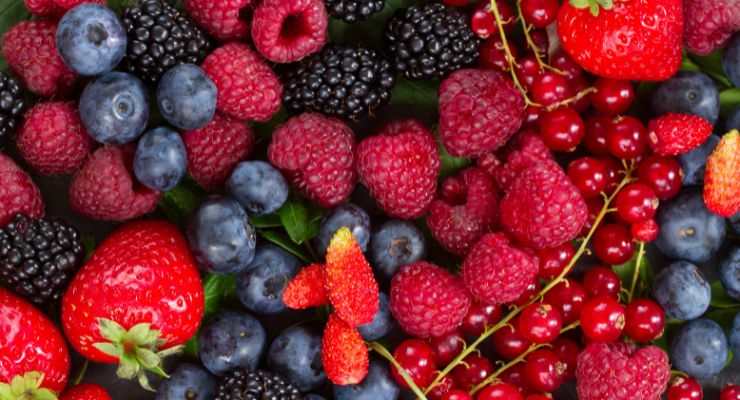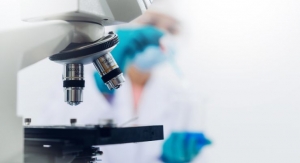10.19.23
Startup company Novella Ltd. is launching its first line of cell-cultivated berry phytonutrients, which are grown using intact berry cells through a technology still in its nascent stages of implementation within the food industry.
The platform will eventually ease some bottlenecks in the supply for high-demand berry ingredients within the global supplement space.
The company has opened a new facility, which will include both its operational headquarters and a pilot plant to accelerate cultivation of whole-berry fruit cells from five varieties. The cultivation of the intact cells in a precision-controlled environment preserves the integrity of the whole phytonutrients in the berries, according to the company.
The project will be led by Moshe Flaishman, PhD, Novella’s chief technology officer.
Berries’ have long been known for their antioxidant benefits, but more emerging research on specific phytochemicals motivated Novella to create a new supply channel for highly-concentrated ingredients containing these newer compounds.
“Berries cultivated solely for supplements on average require about 2,000 acres to yield just one ton of polyphenolic compounds,” said Itay Dana, co-founder and CBDO of Novella. “We have condensed that vast tract of agriculture into a 10K liter bioreactor that produces the same quantity of pure, high-value ingredients. This frees up valuable land for cultivating food crops and provides a host of other economic and environmental benefits, beginning with the complete elimination of waste. Our method requires minimal land, energy, and water usage and exerts a minimal carbon footprint. We can produce high-quality ingredients at affordable prices, independently of climate fluctuations, logistical challenges, or social and political constraints.”
Novella’s cultivation platform, which takes a whole-cell approach screens the plant’s tissues to pinpoint areas of the plant harboring the highest concentration of desired compounds. The selected cells are grown in a closed, controlled system that stimulates natural propagation. Cells are then transformed in a solvent-free process into a potent powder that the gastrointestinal system can readily absorb.
“We perform a one-time selection procedure, taking tissue from the skin and flesh of the berries while the fruit is in its most potent stage,” said Flaishman.
Novella cultivates cells from a variety of botanicals, which it can use to maintain natural complexes of phytonutirenst, including vitamins, minerals, polyphenols, and more. The cell wall serves as a natural form of encapsulation, protecting the actives from oxidation and ensuring maximum absorption in the body, the company reports.
“This means that we can also produce specific berry-derived ingredients by request,”said Flaishman.
“Polyphenols are powerful, yet volatile molecules that can experience losses during traditional extraction processes. Our non-extraction platform bypasses these deficits. The holistic approachharnesses the power of intact berry cells, guaranteeing the delivery of standardized, wholesome, and pesticide-free bioactives,” said Dana.
The platform will eventually ease some bottlenecks in the supply for high-demand berry ingredients within the global supplement space.
The company has opened a new facility, which will include both its operational headquarters and a pilot plant to accelerate cultivation of whole-berry fruit cells from five varieties. The cultivation of the intact cells in a precision-controlled environment preserves the integrity of the whole phytonutrients in the berries, according to the company.
The project will be led by Moshe Flaishman, PhD, Novella’s chief technology officer.
Berries’ have long been known for their antioxidant benefits, but more emerging research on specific phytochemicals motivated Novella to create a new supply channel for highly-concentrated ingredients containing these newer compounds.
“Berries cultivated solely for supplements on average require about 2,000 acres to yield just one ton of polyphenolic compounds,” said Itay Dana, co-founder and CBDO of Novella. “We have condensed that vast tract of agriculture into a 10K liter bioreactor that produces the same quantity of pure, high-value ingredients. This frees up valuable land for cultivating food crops and provides a host of other economic and environmental benefits, beginning with the complete elimination of waste. Our method requires minimal land, energy, and water usage and exerts a minimal carbon footprint. We can produce high-quality ingredients at affordable prices, independently of climate fluctuations, logistical challenges, or social and political constraints.”
Novella’s cultivation platform, which takes a whole-cell approach screens the plant’s tissues to pinpoint areas of the plant harboring the highest concentration of desired compounds. The selected cells are grown in a closed, controlled system that stimulates natural propagation. Cells are then transformed in a solvent-free process into a potent powder that the gastrointestinal system can readily absorb.
“We perform a one-time selection procedure, taking tissue from the skin and flesh of the berries while the fruit is in its most potent stage,” said Flaishman.
Novella cultivates cells from a variety of botanicals, which it can use to maintain natural complexes of phytonutirenst, including vitamins, minerals, polyphenols, and more. The cell wall serves as a natural form of encapsulation, protecting the actives from oxidation and ensuring maximum absorption in the body, the company reports.
“This means that we can also produce specific berry-derived ingredients by request,”said Flaishman.
“Polyphenols are powerful, yet volatile molecules that can experience losses during traditional extraction processes. Our non-extraction platform bypasses these deficits. The holistic approachharnesses the power of intact berry cells, guaranteeing the delivery of standardized, wholesome, and pesticide-free bioactives,” said Dana.




























